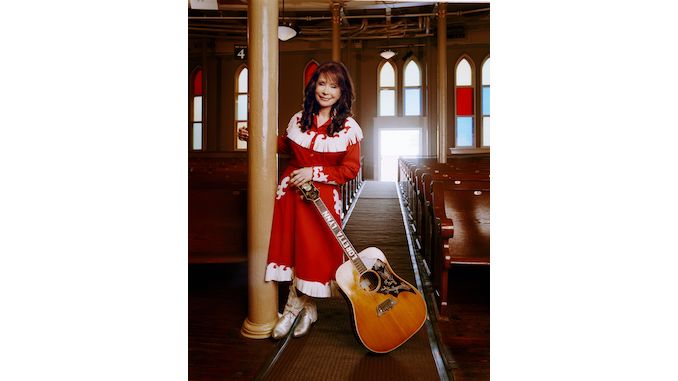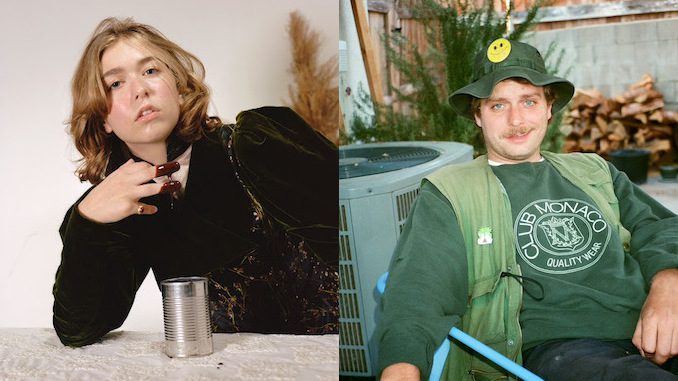It was often hard to separate Loretta Lynn, who died Tuesday at age 90, from her self-applied description, “Coal Miner’s Daughter.” But sometimes it was useful to do so.
Not that the phrase wasn’t accurate. Lynn was indeed the child of Ted Webb, who worked in the Kentucky mines long enough to die of black lung disease in 1959 at age 52. And the songs that Lynn wrote and/or sang drew their details and attitudes from the lives of thousands of coal miners’ daughters. She used the phrase “Coal Miner’s Daughter” not only as the title for her self-penned 1970 #1 country single, but also as the title of her 1976 autobiography and as the title of the 1980 movie based on her life.
But the phrase can be misleading. It can suggest that Lynn’s music is important because it’s so “authentic,” that her background is what enabled her to write and record such powerful music. Lynn’s career is important not because she was typical of her community, but because she was atypical. She had that rare kind of genius that can transform common experiences into unforgettable art.
The coal country of Eastern Kentucky provided the raw material that she put her special gift to work on, but it did not create the gift itself. No one claims that Bob Dylan’s career is important because he is an “Appliance Salesman’s Son,” or that Mick Jagger’s career is important because he is a “Gym Teacher’s Son.” No, Dylan and Jagger had an unusual talent for songwriting and singing, and so did Lynn.
It doesn’t take a lot of talent to write a song that claims a poor mountain childhood is mighty hard, nor does it take a lot of talent to write an academic book that catalogues countless examples of that fact. What takes a special gift is to identify the very best and most visual examples and fit them into a three-minute song that crystallizes the experience. Lynn’s first version of the song had a whole lot of verses, but she proved as skillful an editor as a writer and cut it down to six.
“The song doesn’t tell half of it,” she told American Songwriter in 2020. “If I told the whole story nobody would believe it now anyway.”
The images she chose for those six verses and their steel-driven country melody stuck in the listener’s memory: reading the Bible by the coal oil light, scrubbing clothes on a washboard till the fingers bleed, or buying a new pair of shoes by selling a hog. Then she adds an extra twist by visiting that old cabin years later, when nothing’s left but the floor and the memories. This is great writing, no matter what culture you come from.
Loretta was soon scrubbing the clothes on a washboard the way her mama had, because she got married at age 15 to Oliver “Doolittle” Lynn, a local moonshiner. Before long, Loretta had four children and was taking in laundry in the logging camps of Custer, Washington. At that point, she seemed a highly unlikely candidate to become the songwriter laureate of Appalachia. But she still sang her favorite Kitty Wells songs in a fetching voice, and her mercurial husband—sometimes sweet, sometimes abusive—bought her a guitar and encouraged her to learn it.
She was soon playing local dances and recording two sides for Zero Records, a tiny L.A. label. The A-side of the single, “I’m a Honky Tonk Girl,” went to #14 nationally in 1960, and she landed in Nashville, signed to Decca Records and assigned to producer Owen Bradley, the architect of the greatest singles by Wells, Patsy Cline and Brenda Lee. Bradley’s lush, countrypolitan arrangements counterbalanced the twang in Lynn’s strong but edgy, nasal soprano.
This led to such early, top-five hits as “Before I’m Over You” and “Wine, Women and Song,” two cheating songs written by Betty Sue Perry. The first takes a “Woe is me” approach to the topic, but the latter is vengeful, warning the wayward husband that, “What’s good for one is also good for two.” Lynn soon took Perry’s approach on the latter song and sharpened it further into such memorable hits as the two 1966 classics: “You Ain’t Woman Enough (To Take My Man)” and “Don’t Come Home a Drinkin’ (With Lovin’ on Your Mind).”
As Lynn gained full control of her voice, she was neither the submissive victim, nor the vengeful monster. She was always feisty in defense of her own rights, but never nasty. She articulated the feelings that many women wished they could express, but Lynn sang those words in a voice that those women could identify with: hoping for the best, refusing the worst and trying to survive another day. She was the friend you could share a coffee with and a role model to live up to.
On the other hand, if you were flirting with her husband—or worse—Lynn was ready to take you to “Fist City,” a town where the angry wife grabs you by the hair and lifts you off the ground. This was just one of her songs that was fueled by anger but then exaggerated to such a degree that you weren’t sure when she was serious and when she was joking. That skillful ambiguity allowed her to sing things on country radio that almost no one else could get away with.
“The Pill,” for example, was a witty treatment of the very real freedom that contraception allowed women. “One’s on the Way,” written, like “Hey Loretta,” by cartoonist/author Shel Silverstein, contrasted the tabloid lives of Jackie Kennedy and Raquel Welch with the narrator’s fate, stuck at home with not enough money and too many kids, of which “one of them is toddling and one is a-crawling and one’s on the way.”
Beneath the comic hyperbole and down-home color, these songs had something perceptive to say about the politics of gender—and the politics of class. In the bewildering way of country-music opinions, however, Lynn was willing to campaign for George W. Bush and Donald Trump in later years. But that was after she had had her last top-40 country single in 1985, after her greatest triumphs were behind her, after she had shifted focus to a series of successful but underwhelming duets with Conway Twitty, as she began to write fewer and fewer songs herself.
But Lynn had one more triumph in her. The White Stripes’ Jack White had long been a fan and offered to produce a record for her. But he insisted that she write all the songs herself, and she responded with her finest writing in decades. The title track from the resulting 2004 album, Van Lear Rose, retold the story of her parents’ courtship with such telling details as the coal miners shouting at the young beauty whenever she walked by and that same beauty years later causing her husband to shove his hair out of his eyes for a better look.
She wrote about a marriage resembling a bad phone connection, about a husband’s infidelity locking the wife in a “Women’s Prison,” about taking her kids to meet the woman “burning down our family tree,” and about a widow who admits, “I miss being missus.” This was a highlight not only of Lynn’s career, but also of White’s.
Among the record’s many achievements is that it proved once and for all that Lynn didn’t need Owen Bradley’s production or her own identity as a “Coal Miner’s Daughter” to make great music. Even among the loose and aggressive guitars and drums of White’s garage-rock band, Lynn still came across as a great songwriter and great singer. That talent had first flourished in an Appalachian context, but it was never dependent on it.
Revisit a 1981 Lynn performance from the Paste archives below.




